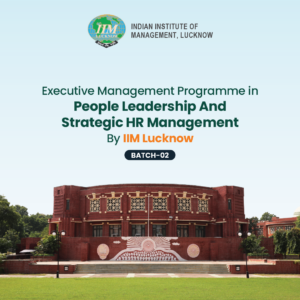A workplace is where every training session isn't just a checkbox on the to-do list but a strategic move towards building a powerhouse team. We're here to unravel the mysteries behind successful employee training, exploring the metrics that go beyond attendance numbers and completion rates.
It's time to shift gears and focus on the metrics that truly matter, turning your training efforts into a symphony of skill development, engagement, and, of course, success. As organizations strive to stay ahead, it's crucial to understand the shifting needs of employees and the role of HR in training programs.
As per the Association for Talent Development (ATD), businesses providing extensive training programs witness a remarkable 218% increase in income per employee compared to those lacking formalized training. The positive impact doesn't end there; these companies also revel in a 24% higher profit margin compared to those allocating fewer resources to training.
So, buckle up because we're about to crack the code on what separates the ordinary from the extraordinary in the realm of employee training. Get ready to unleash the potential of your team like never before!
How does Employee Training Impact Performance?
Gone are the days when a one-size-fits-all training approach could satisfy the diverse needs of today's workforce. From millennials seeking skill diversification to Gen Z desiring tech-savvy learning experiences, understanding these evolving needs is the first step toward crafting impactful training programs. Employee training is like giving your team the right tools to do their job.
Here's how it impacts performance:
- Skills Improvement: Training helps employees learn new skills and sharpen existing ones. This can boost their performance on tasks directly related to these skills.
- Confidence Boost: When employees know what they're doing, they can do it confidently. This can also lead to improvements in efficiency and effectiveness.
- Reduced Supervision: A well-trained employee can work independently without constant supervision. This can save time for managers and leaders, allowing them to focus on strategic tasks.
- Adaptability: Training in new technologies and methodologies helps employees adapt to changing job requirements. This makes the organization more resilient and ready for future challenges.
- Employee Satisfaction: Employees who receive training may feel more valued and satisfied.
Remember, the goal of training is to improve performance and empower employees to contribute their best to the organization's success. So, investing in employee training is investing in the company's future.
Importance of Effective Training on Employee Performance
An organization where employees are equipped with the right skills, knowledge, and confidence. What does it lead to? Enhanced performance! Employee training metrics not only sharpen existing skills but also foster a culture of continuous improvement, directly impacting overall employee performance.

In today's ever-evolving workplace landscape, the importance of effective training on employee performance cannot be overstated. Imagine your favorite superhero without their superpowers – that's similar to employees without the right skills and knowledge. Effective training is the secret that transforms ordinary individuals into workplace heroes. It's not just about learning; it's about staying ahead of the game in the dynamic world of modern workplace training trends.
When employees are equipped with the latest skills and insights, they become more confident, productive, and adaptable to the changes happening around them. It's like giving them a toolkit filled with superpowers tailored for the challenges of the contemporary professional realm. In essence, investing in effective training is not just an organizational benefit; it's a strategic move that propels both individuals and the company toward sustained success in the ever-changing landscape of the modern workplace.
HR Management's Role in Employee Training:
HR managers play a pivotal role in identifying training needs, designing programs, and ensuring seamless implementation. Their involvement is not just about ticking off a checklist but fostering an environment where learning is a continuous journey.
Here are some HR strategies for assessing training success:
Engagement and Participation:
Let's kick things off with engagement - the heartbeat of any successful training program. It's not just about the content; it's about how it's delivered. From interactive workshops to gamified learning modules, finding the right balance ensures employees are not just present but actively participating. After all, an engaged mind is a fertile ground for knowledge to flourish.
Impact on Employee Retention:
Imagine investing time and resources into training your team, only to see them leave for greener pastures. Training programs that align with employee career goals and personal development significantly contribute to retention. Employees feel valued, supported, and less likely to jump when they see their growth as a priority.
Assessing Training ROI:
Now, let's talk numbers - the language every business understands. Return on Investment (ROI) in training is not just a financial figure; it's a testament to the effectiveness of your programs. Calculating ROI involves measuring the impact of staff training key performance indicators (KPIs) such as productivity, quality, and customer satisfaction.
Adapting Training Programs Based on Metrics:
One size fits none. That's where data-driven decisions come into play. By continuously monitoring training metrics, organizations can identify what works and what doesn't. Is a particular module not resonating with your team? Adapt! Are certain skills consistently lacking post-training? Tailor your programs accordingly. It's the art of staying agile in the face of evolving needs.
The Final Words
The success of employee training lies not just in the execution but in the ongoing evaluation and adaptation. By keeping a finger on the pulse of engagement, retention, and ROI, organizations can create a dynamic learning environment that propels both individuals and the company forward.
Summary Of Key Pointers:
- The professional world's constant is the need for ongoing employee development.
- Organizations must understand the evolving needs of employees to stay ahead.
- Millennials seek skill diversification, while Gen Z desires tech-savvy learning experiences.
- Employee training is akin to providing the right tools, leading to enhanced performance.
- Skills improvement, boosted confidence, reduced supervision, adaptability, and increased satisfaction are key outcomes.
Empower Your HR Journey: Imarticus Learning's Comprehensive HR Management Program
IIM human resource management program by Imarticus Learning is crafted to equip participants with the essential information and skills needed to manage human resources in today's dynamic business environment effectively.
Covering an extensive array of topics, including job analysis, strategies for hiring and retaining talent, performance management, training and development, pay and benefits, skill enhancement, diversity management, organizational culture establishment, and employee engagement, this comprehensive curriculum ensures a holistic understanding of HR functions.
This program goes beyond traditional learning by offering an immersive learning experience, placing a strong emphasis on hands-on training. Participants will have access to 3+ trending tools, engage with 8+ case studies, and work on real-world projects, providing practical knowledge crucial for success in their chosen field.
Moreover, the program provides six months of pro access to IIMJobs and Hirist, opening doors to diverse job opportunities and facilitating connections with potential employers.
Ready to embark on a transformative HR management journey? Secure your spot in Imarticus Learning's HR Manager Course now. Elevate your career with a unique blend of academic and industry expertise. Enroll today and unlock a world of opportunities in human resources.








